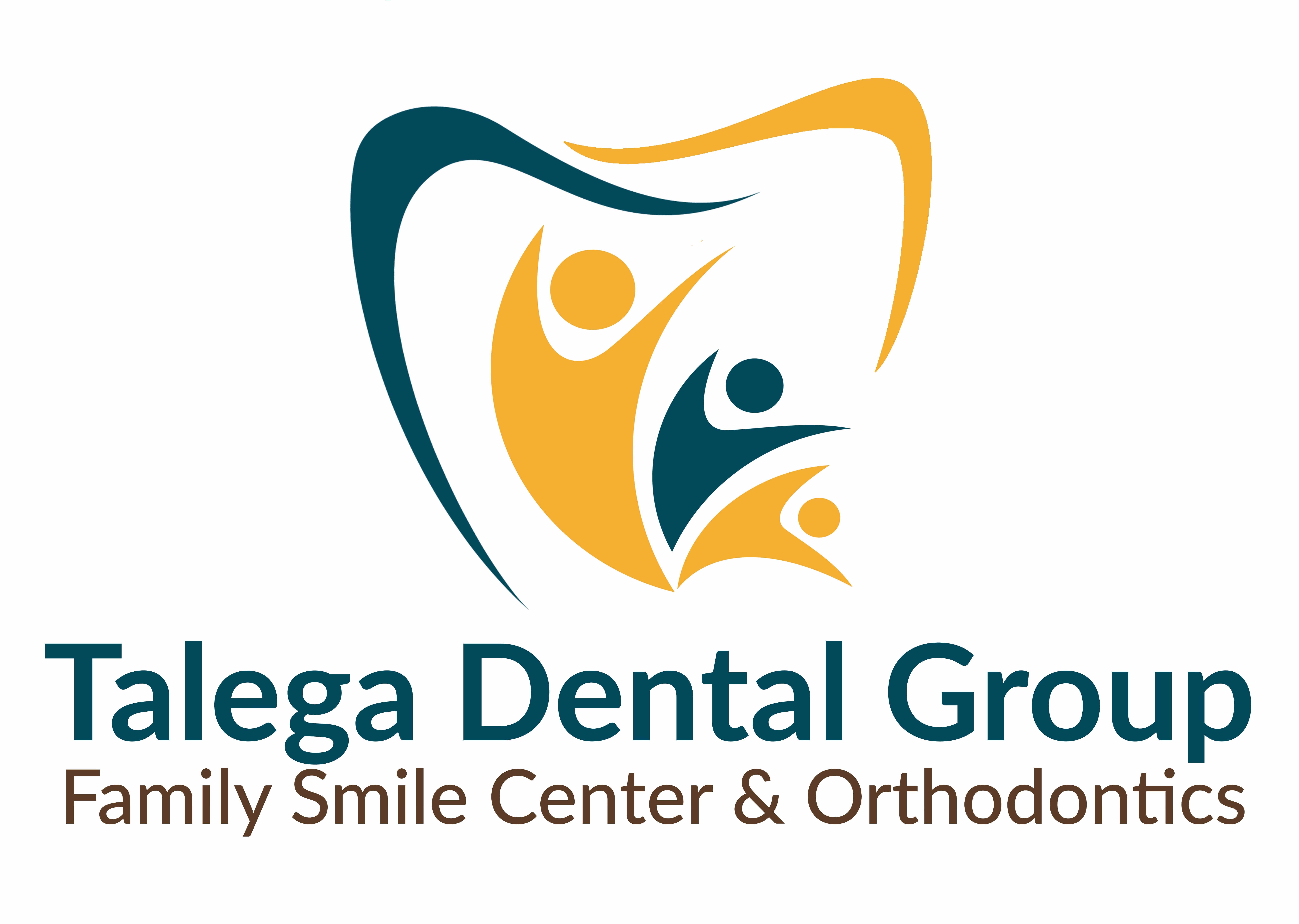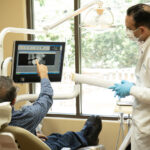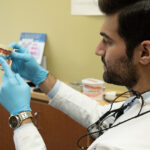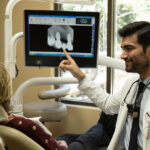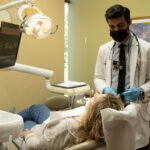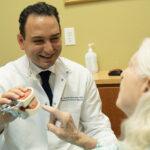Dentures
Removeable Dentures
What Are removeable dentures?
Dentures, including removable dentures, replace missing teeth and surrounding tissues. Specifically, there are two main types:Firstly, use partial dentures when some natural teeth remain. These dentures, consisting of replacement teeth attached to a metal or plastic framework, improve chewing and maintain facial structure by filling the gaps created by missing teeth. Additionally, they clasp onto the remaining natural teeth for stability.Secondly, use complete dentures, also known as full dentures, when all natural teeth are missing. These dentures, with a flesh-colored acrylic base supporting a full set of replacement teeth, fit snugly over the gums to restore the appearance and function of a complete smile.Furthermore, consider variations in materials and designs:For example, conventional dentures, fully removable, are designed after teeth extraction and gum healing, a process that may take several weeks. They offer flexibility in design and material choices.Additionally, implant-supported dentures secure to dental implants surgically placed in the jawbone. These dentures provide a more stable fit, improved chewing efficiency, and prevention of bone loss in the jaw.Ultimately, choose each type of denture based on the patient's specific dental condition, budget, and preferences. Dentures play an integral role in restoring oral functionality, aesthetics, and overall quality of life for individuals with missing teeth.
some advantages of Removable dentures
Improved chewing and eating: Improved chewing: Dentures restore eating comfort and support diverse diets, enhancing nutrition.
Affordability: Dentures offer affordable teeth replacement, contrasting with pricier alternatives like dental implants. Additionally, their non-surgical process broadens accessibility.
Enhanced speech: Enhanced speech: Dentures fill gaps, rejuvenate smiles, and are cost-effective compared to implants.
Talega Dental Group is excited to welcome new patients from all surrounding areas! To schedule your appointment, please walk in, call us, or submit an online form. We look forward to meeting you and providing exceptional dental care.
outline of procedure for removeable dentures
- The first step in getting dentures involves a consultation with a dentist or prosthodontist. During this meeting, they evaluate oral health, discuss denture options, and take impressions of your mouth.
- Next, after the dentures are ready, a fitting appointment is scheduled. During this visit, the dentist ensures comfort and makes necessary adjustments for a proper bite.
- Then, new denture wearers may go through a trial period. Follow-up visits are essential during this time to address any discomfort and make further adjustments.
- Meanwhile, proper denture care is crucial for maintenance. Regular cleaning, removal during sleep, and dental check-ups are recommended to ensure longevity and oral health.
- Finally, using the impressions taken earlier, dentures are custom-made. The color, shape, and size are chosen to achieve a natural look that fits well with your facial structure.
outline of procedure for implant procedure
Firstly, meet with a dental implant specialist to discuss options and determine your candidacy for implant dentures.
Next, allow several months for the implants to fuse with the jawbone, establishing a strong foundation.
Then, attach abutments to the implants, which serve as connectors for the denture.
Afterward, secure the custom-made denture to the abutments for a stable and functional implant denture solution.
Finally, under local anesthesia, the specialist surgically inserts titanium implants into the jawbone.
Example of the DIFFERENT TYPES:
Conventional

Implants
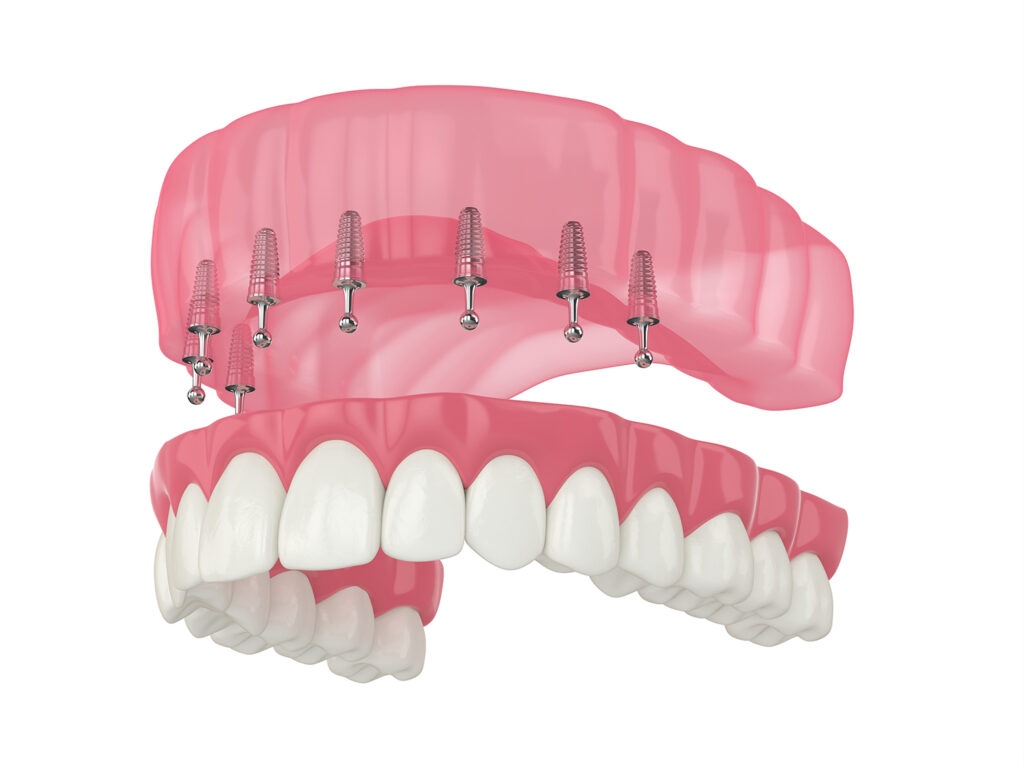
Contact Us for inquiries about Removable dentures.
Our Primary Services
Crafting Healthy Smiles One Smile at a Time,
At Talega Dental Group, we take pride in offering the very best dental services to our patients, ensuring every visit is a positive and comfortable experience. Moreover, our skilled team uses the latest technology and advanced techniques to provide top-notch care, from routine cleanings to complex procedures. Additionally, we focus on personalized treatment plans, addressing each patient’s unique needs with attention and compassion. Furthermore, we prioritize patient education, empowering you with the knowledge to maintain optimal oral health. Finally, with a warm and welcoming environment, our goal is to make you feel at ease, knowing you’re receiving exceptional dental care every step of the way.
